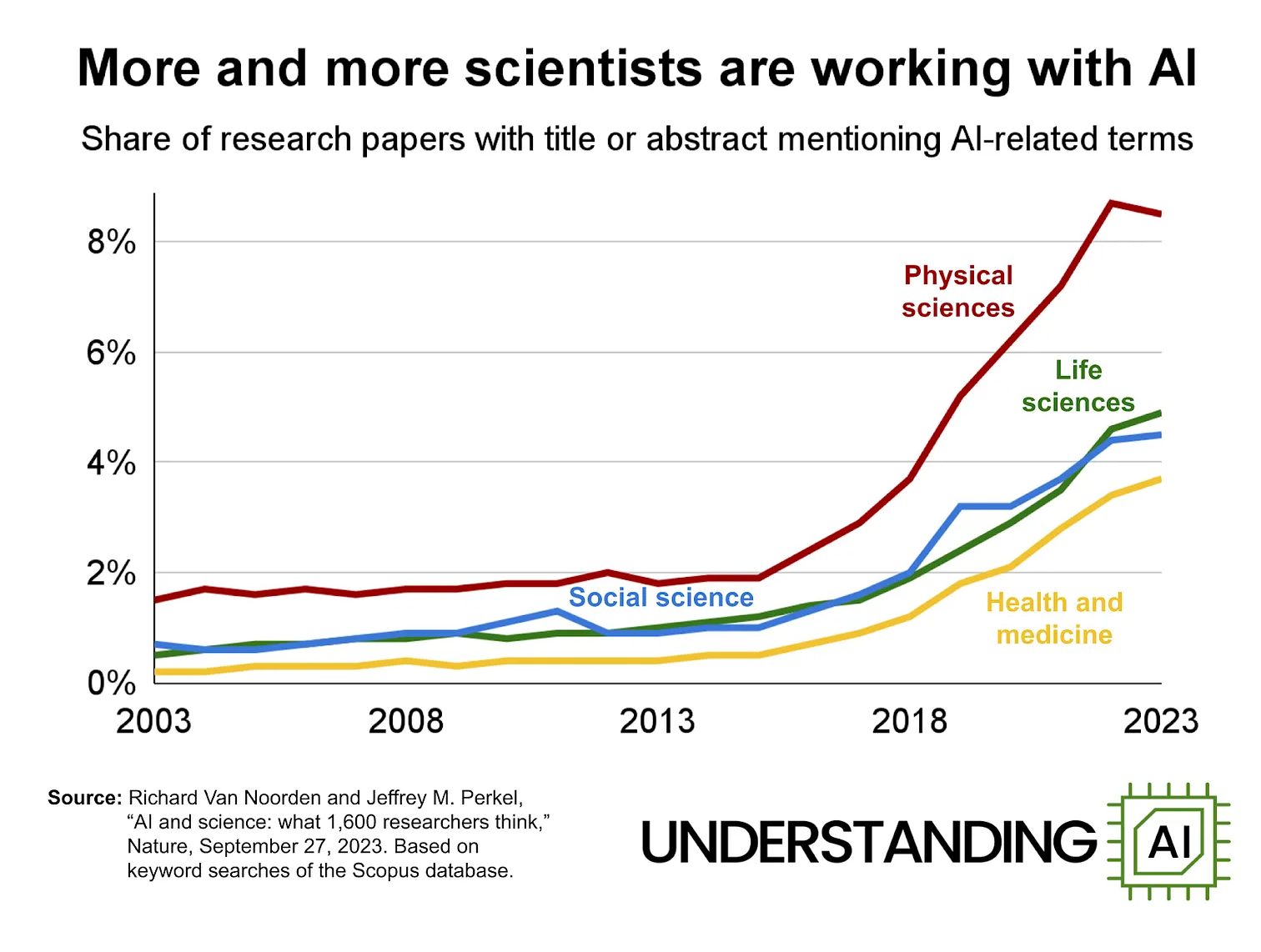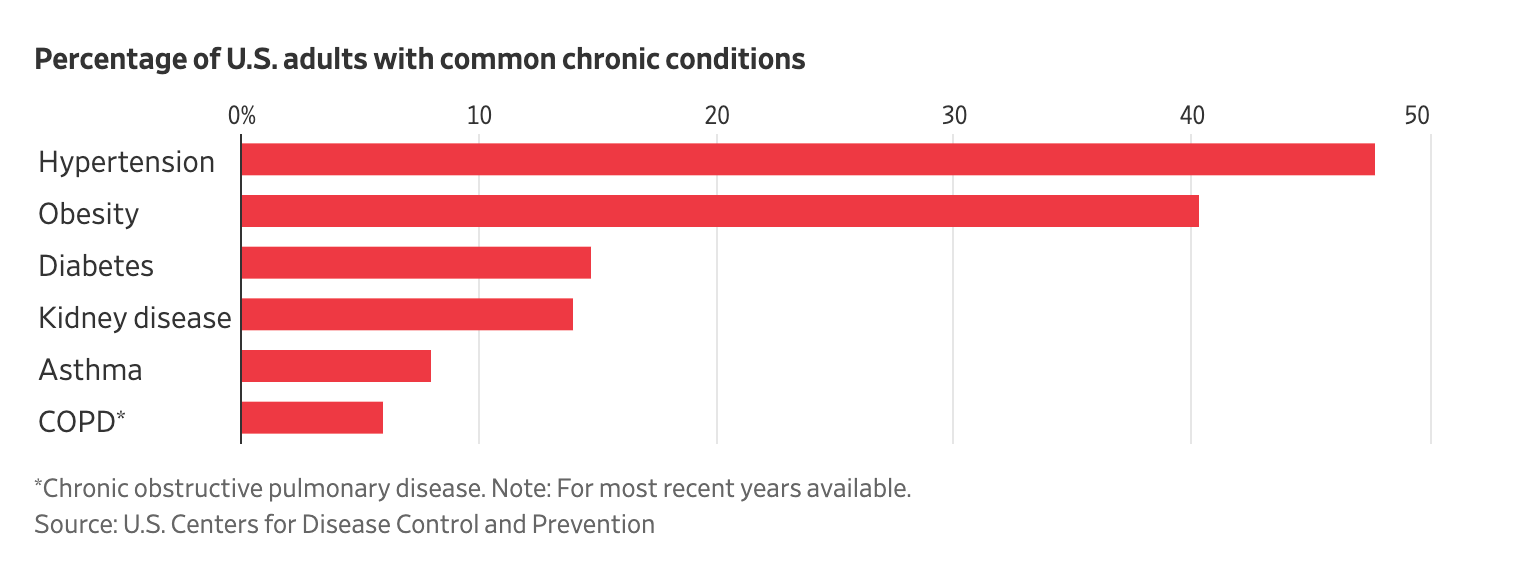MAY 25, 2025—GENERAL EDITION
This is a weekly free look of our premium daily Four Ideas email. If you're not already a subscriber, sign up for a five-day preview.
HEADLINES:
- Apple threat impacts India's tariff talks (NY Times)
- Tax bill raises bond investor concerns (NY Times)
- Two Israeli embassy staffers shot in Washington (WSJ)
- Apple plans glasses for 2026, cancels camera watch (Bloomberg)
- Mystery buyer bets $3 billion on US stock rally (Bloomberg)
- Investors question next steps post-American fever (FT)
- Jony Ive and Sam Altman possibly challenge Apple (FT)
TWO GRAPHS:

Research papers in physical sciences mentioning AI rose from under 2% to over 8% since 2018, significantly outpacing other fields. This surge highlights the growing integration of AI technologies in physical sciences, emphasizing a critical shift in research methodologies and potential advancements in technological innovations.

Hypertension and obesity each affect over 40% of U.S. adults, significantly more than diabetes at roughly 15%. This disparity highlights a major public health challenge as these conditions are major risk factors for heart disease and other serious health issues.
THE IDEAS:
Mentions: TSLA, HON, MAR, IHG, BABA
01. AI reshapes job market and business models.
The integration of AI is transforming the job landscape by automating tasks and creating new roles that demand diverse skills. This shift is challenging traditional business models and influencing how companies operate within the broader economy, particularly in tech sectors.
Related reading:
Financial Times: The great AI jobs disruption is under way
Oxford Economics: New Tools, New Skills, No End in Sight: The Challenge of AI Adoption
02. Japan's regional manufacturing hot spots emerging.
Japan is experiencing a shift as its export-reliant industries cluster in certain cities, revealing disparities but also pointing to new growth areas with job creation potential. These trends indicate potential investments and economic opportunities across less developed regions.
Related reading:
Oxford Economics: Identifying future manufacturing hot spots in Japan and their implications
03. Hospitality adapts to tech and consumer trends.
The hospitality industry is adapting rapidly to changing consumer preferences and technological advancements. This presents opportunities for businesses to innovate in booking processes, customer experiences, and operational efficiencies in response to evolving market demands.
Related reading:
Hospitality Net: 3 Emerging Booking Trends You Can’t Ignore in 2025
Hospitality Net: Top 10 Hospitality Trends: What Shaped 2024 and What To Expect in 2025
04. Geoeconomics alters global trade relationships.
The blending of tech, trade, and military policies is leading to altered global trade dynamics, with geopolitical partners trading more with each other and less with rivals. These shifts may influence corporate strategies and international economic policies.
Related reading:
Financial Times: Welcome to the new age of geoeconomics
Freight Waves: McKinsey: Geopolitical partners trading more with one another, less with rivals
